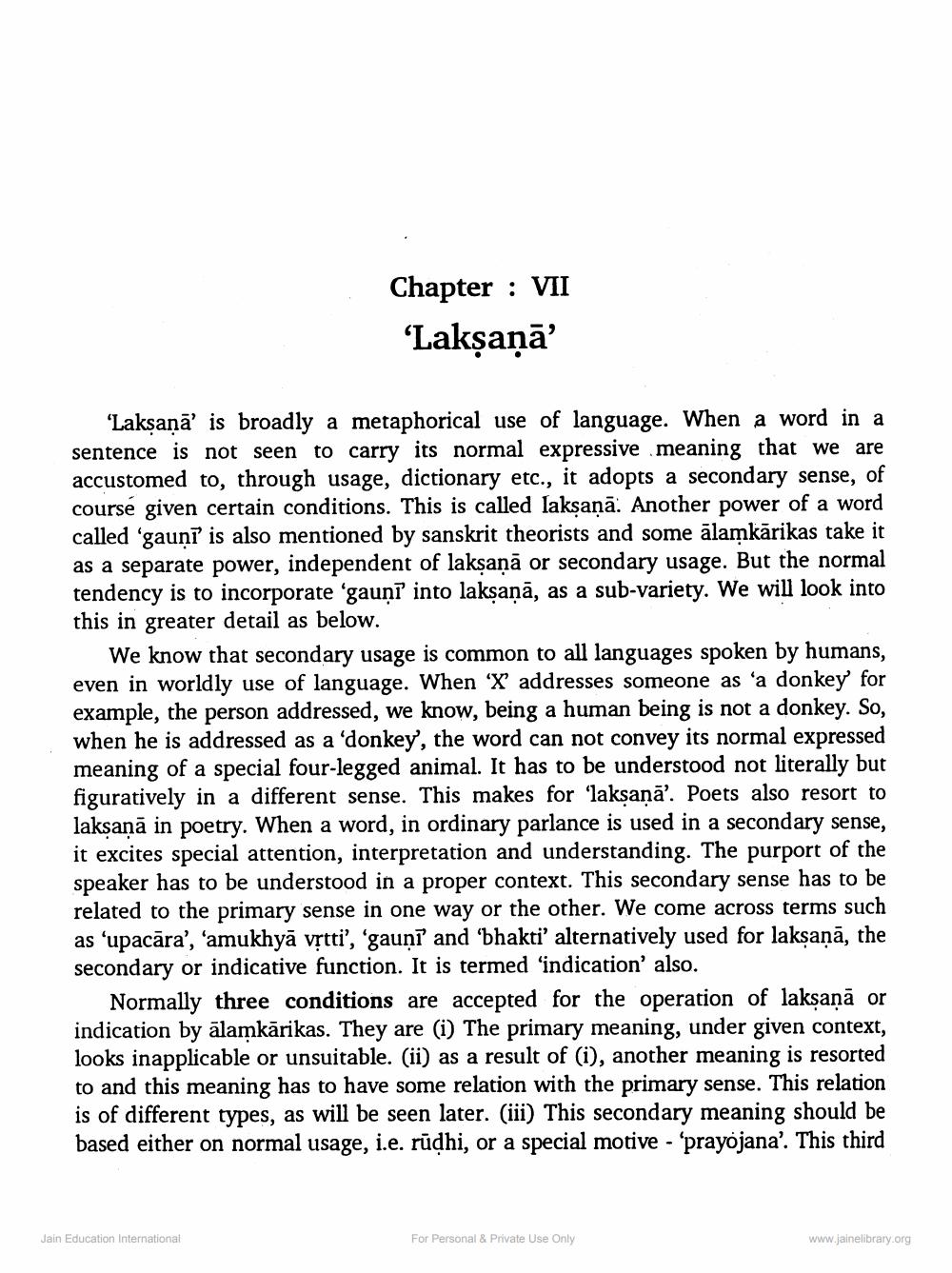________________
Chapter : VII ‘Lakşaņā
‘Laksanā' is broadly a metaphorical use of language. When a word in a sentence is not seen to carry its normal expressive meaning that we are accustomed to, through usage, dictionary etc., it adopts a secondary sense, of course given certain conditions. This is called laksanā. Another power of a word called 'gauni is also mentioned by sanskrit theorists and some ālamkārikas take it as a separate power, independent of laksaņā or secondary usage. But the normal tendency is to incorporate 'gaunī into laksanā, as a sub-variety. We will look into this in greater detail as below.
We know that secondary usage is common to all languages spoken by humans, even in worldly use of language. When 'X' addresses someone as 'a donkey for example, the person addressed, we know, being a human being is not a donkey. So, when he is addressed as a 'donkey', the word can not convey its normal expressed meaning of a special four-legged animal. It has to be understood not literally but figuratively in a different sense. This makes for 'laksana'. Poets also resort to laksanā in poetry. When a word, in ordinary parlance is used in a secondary sense, it excites special attention, interpretation and understanding. The purport of the speaker has to be understood in a proper context. This secondary sense has to be related to the primary sense in one way or the other. We come across terms such as ‘upacāra', 'amukhyā vịtti', 'gauņi and 'bhakti' alternatively used for lakṣaṇā, the secondary or indicative function. It is termed 'indication' also.
Normally three conditions are accepted for the operation of laksaņā or indication by alamkārikas. They are (i) The primary meaning, under given context, looks inapplicable or unsuitable. (ii) as a result of (i), another meaning is resorted to and this meaning has to have some relation with the primary sense. This relation is of different types, as will be seen later. (iii) This secondary meaning should be based either on normal usage, i.e. rūdhi, or a special motive - 'prayojana’. This third
Jain Education International
For Personal & Private Use Only
www.jainelibrary.org




